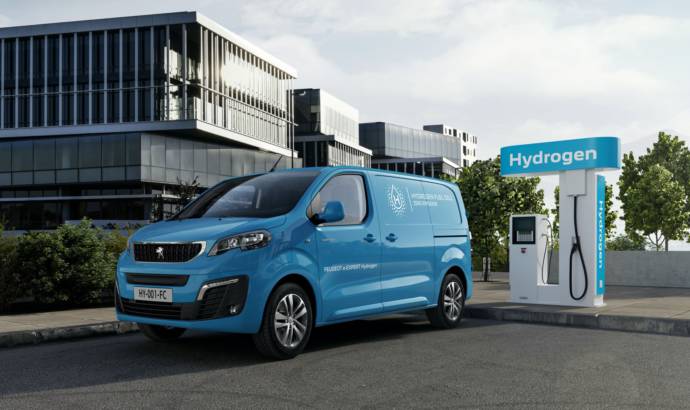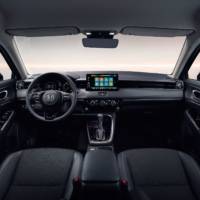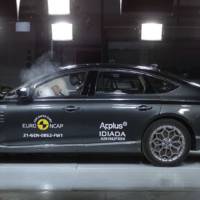Peugeot is one of the first automakers to introduce a hydrogen fuel cell-powered electric model in the light commercial vehicle (LCV) segment.
The new Peugeot e-Expert Hydrogen is the newest model to fulfil Peugeot’s “power of choice” promise, which allows customers to select the optimal powertrain for their needs without compromising capabilities. The e-Expert Hydrogen, Peugeot’s first fuel cell car, underlines the brand’s intentions to provide electric vehicles throughout its complete range by 2025.
The Peugeot e-Expert, a fully electric battery-powered vehicle, was debuted in 2020 and named International Van of the Year the following year, making it the sixth Peugeot vehicle to win the title since 1992.
The new e-Expert Hydrogen is a fully electric vehicle that combines two on-board sources and is based on the EMP2 (Efficient Modular Platform).
The new Peugeot e-Expert Hydrogen, which is based on the EMP2 (Efficient Modular Platform), is a fully electric vehicle that combines two on-board sources: a hydrogen fuel cell and an electric motor. A hydrogen fuel cell, which is situated in the engine compartment at the front of the vehicle, generates energy for the electric engine by recombining the hydrogen in the tank with oxygen from the air. Through the exhaust pipe, it solely releases water vapour. A permanent magnet electric motor with a maximum output of 100 kW produces a maximum torque of 260 Nm. This electric powertrain, which is located on the front axle, is identical to that of the Peugeot e-Expert.
The Peugeot e-Expert Hydrogen, which is powered by the revolutionary “mid-power plug-in hydrogen fuel cell electric” system, can fill up with hydrogen in three minutes and is equipped with a 10.5 kWh battery that helps power the electric motor. The e-Expert Hydrogen offers a range of more than 245 miles with zero-emissions.
The on-board three-phase 11 kW charger ensures that the Peugeot e-Expert Hydrogen may be fully charged in under an hour from an 11kW Wall Box (32A), three hours from a reinforced socket (16A), or six hours from a regular socket (8A).
The high-voltage battery alone supplies the electric engine with the power it need for traction during start-up and low speeds. At a constant speed, the fuel cell immediately feeds energy to the electric engine. During accelerating, overtaking, or hill climbing, the fuel cell and high-voltage battery work together to give energy to the electric engine, while the electric engine recharges the high-voltage battery during braking and deceleration.
The hydrogen tank system is placed beneath the floor to maximise load capacity and is available in Standard (4.95 metres/26.2 feet) and Long (5.30 metres /17.4 feet) lengths. The e-Expert Hydrogen has a maximum load volume of up to 6.1 cubic metres, a payload capacity of up to 1,100 km (2,425 pounds), and a towing capacity of up to 1,000 km (2,205 pounds).
Peugeot has also outfitted the e-Expert Hydrogen with customised shock absorber and spring settings for a smoother ride even under modest loads. The e-Expert Hydrogen has a turning radius of 12.4 metres (40.7 feet) thanks to a specifically modified power steering system. To enhance pedestrian safety, at speeds of up to 18 mph (29 kmh), a sound signal is activated to notify that a vehicle is coming in forward and reverse gear.
To meet a range of demands, drivers may select one of three driving modes from the central console: Eco, Normal, or Power. Eco (60 kW, 190 Nm) is designed for long-distance travel, while Normal (80 kW, 210 Nm) is designed for everyday use. When hauling heavy loads, Power (100 kW, 260 Nm) improves performance.
To provide owners peace of mind, the lithium-ion battery is covered by an eight-year/100,000-mile warranty for 70 percent of its original charge capacity.
Customers in France and Germany will be able to purchase the Peugeot e-Expert Hydrogen by the end of 2021.
Source: Peugeot


